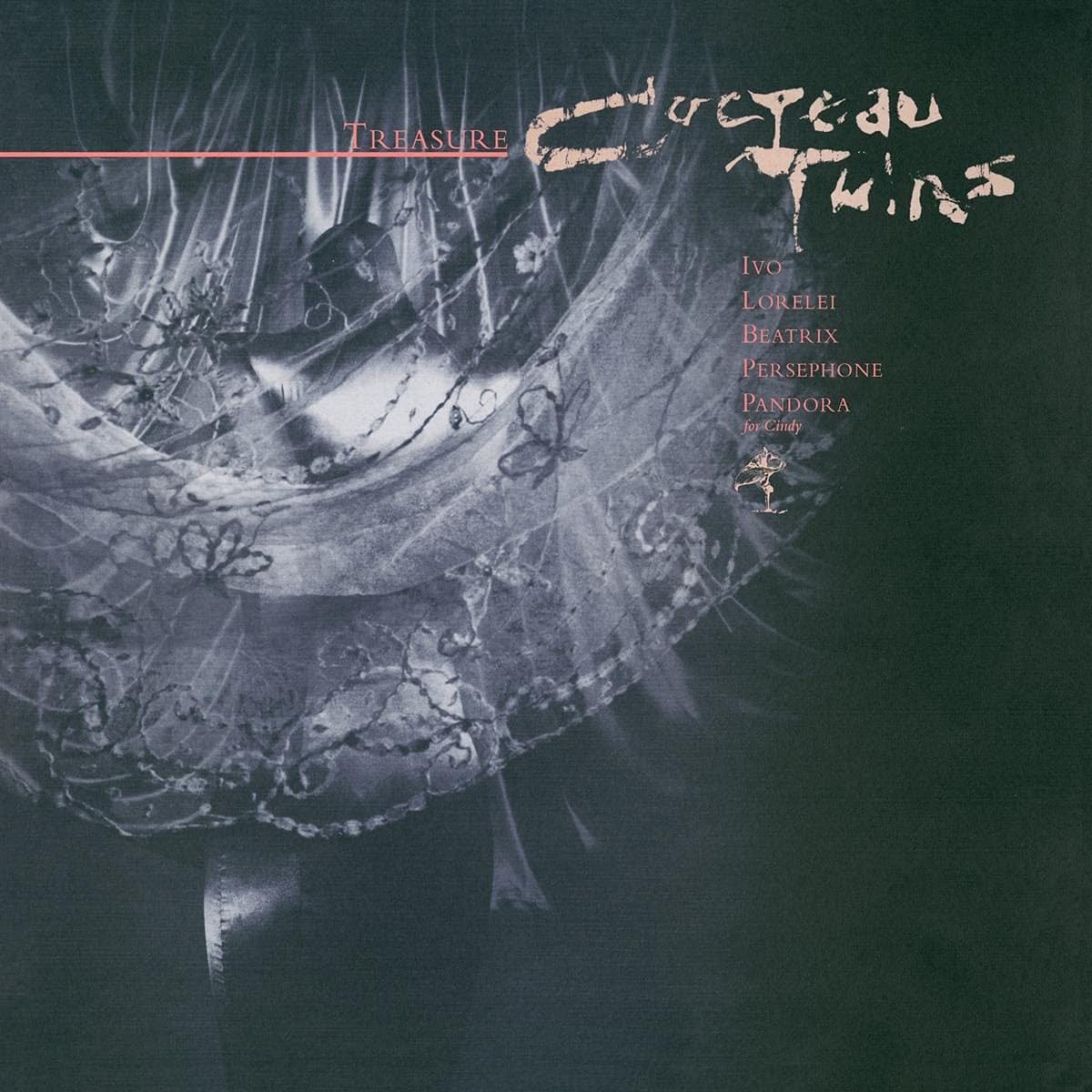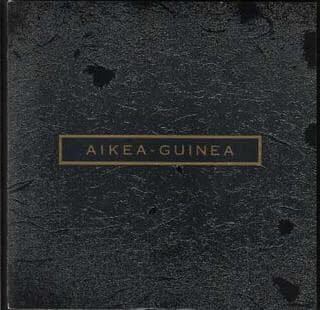Cocteau Twins Series: TREASURE
The third in a series on the Cocteau Twins discography. Beep-bop-ee-vo.
If “Sugar Hiccup” and “Pearly-Dewdrops’ Drops” were the first dream pop songs, then TREASURE is the first true dream pop album. With the trio that would stick it out newly minted, this is where Cocteau Twins really cement themselves as a force to be reckoned with and become the band we know them as now.
I don’t feel Elizabeth Fraser really gets into full glossolalia yet on this record, but the pulsing opener “Ivo” — named for 4AD label honcho Ivo Watts-Russell, the visionary who designed This Mortal Coil, the great goth supergroup of the 80s — boldly signals her playful relationship to language on this and future records.
“Lorelei” is full of vibrant, rising life in a way I’m always searching for in music and storytelling, and which only Cocteau Twins achieve in quite this way. It’s as “good fuckin morning!!” of a song as I’ve ever heard. Also, along with some versions of the cover art, here we start to spell out the album’s use of fanciful given names in song titles as a sort of loose thematic binding.
“Beatrix” may be the clearest evidence thus far of the band’s goth roots, wailing incantations like the chamber music of an ancient witches’ coven. “Persephone” builds on that unresolved tension with one of the band’s starkest goth-rock bangers, a menacing track and sort of spiritual sequel to “Five Ten Fiftyfold” from Head Over Heels.
This early peak melts into the drifting, even ambivalent bliss of “Pandora (for Cindy)” — the only parenthetical I can find in a song title on any Cocteau LP — a song whose lazy yet rambling vocals, lilting arpeggios, and tap-tappy open hats clearly inspired some of Radiohead’s best work. (Most of Radiohead’s albums have one or two tracks that dabble with a dreamy, jazzy streak foretold by this track’s energy, but it’s probably most consistent and evident on In Rainbows.)
A lot of albums start to falter at track 5, as artists understandably want to frontload the runtime with their best or most attention-grabbing material. “Amelia” tells us this record won’t fall into that trap like the previous two LPs may have, tripling down on the chamber-goth atmospherics and momentum being built.
“Aloysius” starts off in that bright, ambient terrain of “Pandora” — but this time the drums kick in hard, building on the LP’s previously divergent threads by bringing them together. It’s proto-chamber pop, goth rock, and a drifting lullaby all at once…in other words, pure dream pop.
We again bob from major-leaning back to minor-leaning chords in “Cicely,” a kind of gothic fever dream that would be smooth if not for the stark, antagonistically piercing snares — firming up a clear structural ebb and flow between the Cocteaus’ ≈brighter and ≈darker mood landscapes across this album.
“Otterley” lingers in the gloom, carrying us away to a dark place that recalls This Mortal Coil’s original interlude “Waves Become Wings” from It’ll End in Tears—which, amazingly, came out exactly ONE MONTH … BEFORE … this album.
1984, friends. Cocteau Twins just could not be stopped.
The gloom finally breaks (or does it?) as we sidestep into “Donimo,” the pure archetype of Cocteau Twins in Angelic Enchantress mode — and the early Cocteau song that most actually resembles David Lynch’s many dedicatedly “heavenly” efforts to replicate their TMC “Song to the Siren” cover in nearly all of his films and series (including the ones after Lost Highway, even though he had finally just gone out and got the rights to use it directly lol).
“Donimo” — NOT “domino,” but a strange word foreshadowed in “Ivo” (as was the title “Persephone”) — comes with two plot twists. First, the cheery, march-like angelic vocal breaks to reveal a dark, grinding, spongey bass backdrop more than once. Then, as in “Aloysius,” the drums kick in harder than you’d guess — unexpectedly choosing sides with strictly the angelic, not the gloom.
And there it is: the first dream pop album, the first true Cocteau Twins record, and what’s more, their first masterpiece — and they called it unfinished.
I thought I’d need to get an album or two closer to Heaven or Las Vegas to feel this way. God, how much they achieved in two years.
Another Cocteau Twins EP I almost missed, AIKEA-GUINEA, named for a Scottish term for…seashells?
The title track, also a single, fades in and hops about in the air — one of those Cocteau moments where you could swear you must have heard this before, even though you clearly haven’t.
The first time I listened to “Kookaburra,” I thought it was just kind of “there.” The next time, I fell in love with its joyful, laid-back take on post-punk.
“Quisquose” is a weird, dark, Treasure-like Gothic Yodeler marked by a chattering reverb that reminds me of being too high.
If any artist was ever entitled to have a song called “Rococo,” it’s Cocteau Twins. But despite the imagery conjured by that title, the track opens with an oddly 90s-car-commercial-friendly guitar line before exploding into a heavy, fuzzy closer reminiscent of “Musette and Drums.”
Good EP.
This piece is part of an ongoing series. Find the other parts below:
Garlands + Lullabies
Head Over Heels + 3 EPs
Treasure + Aikea-Guinea
All content © 2022 Sinistra Black, All Rights Reserved.
Images referenced under Fair Use.





